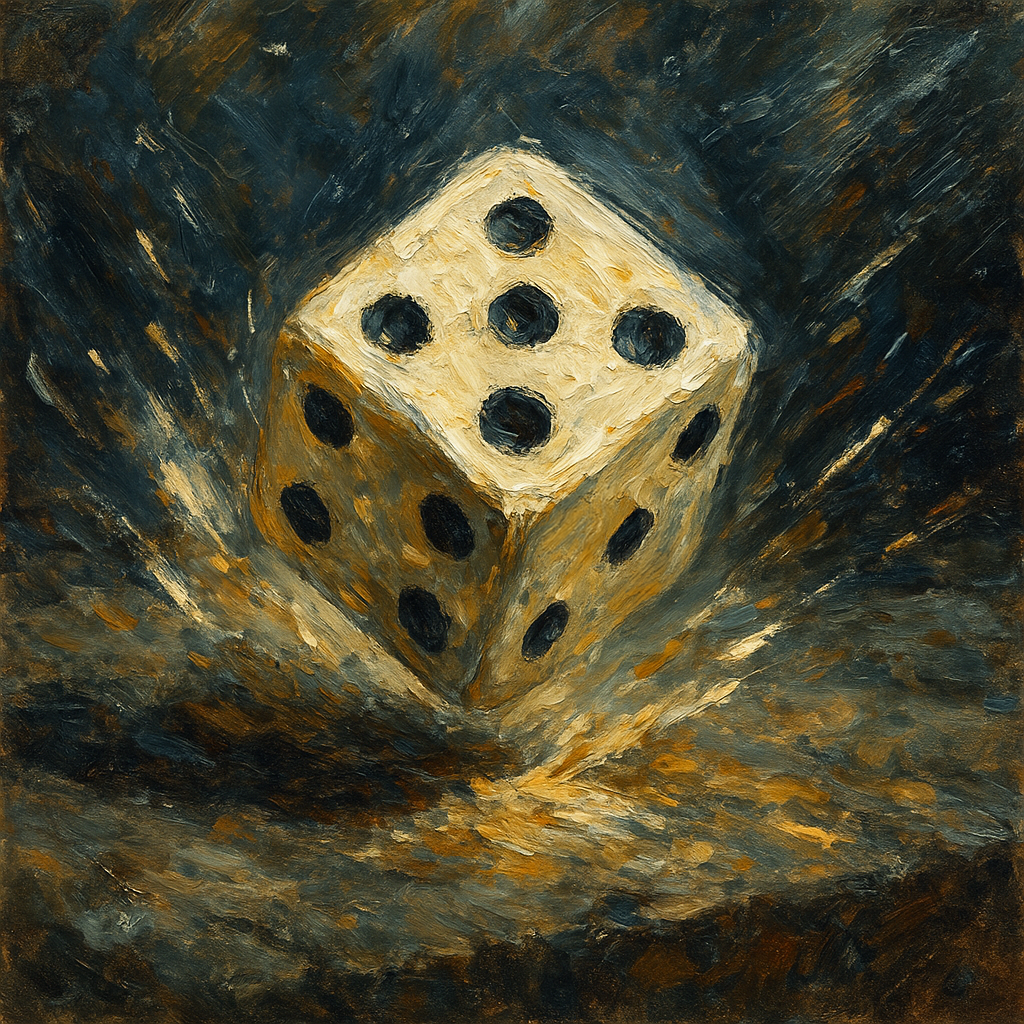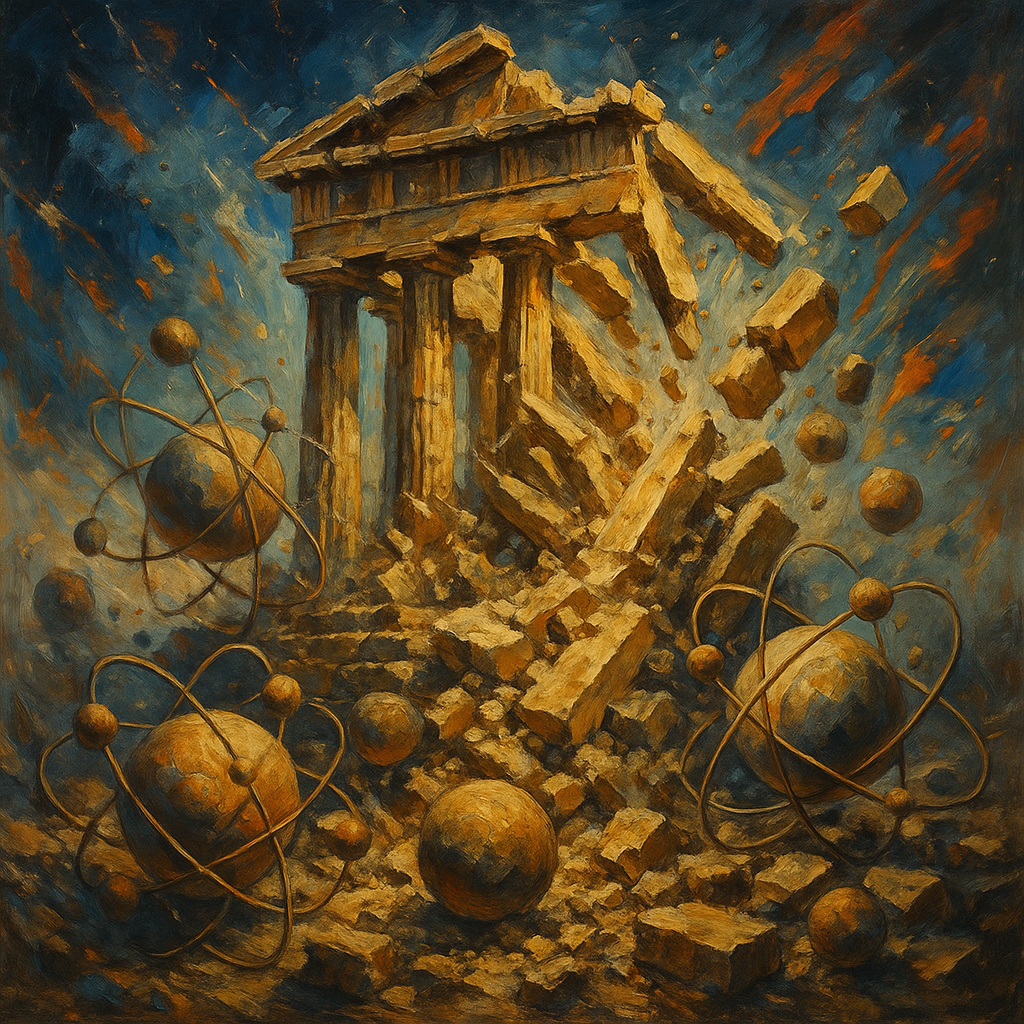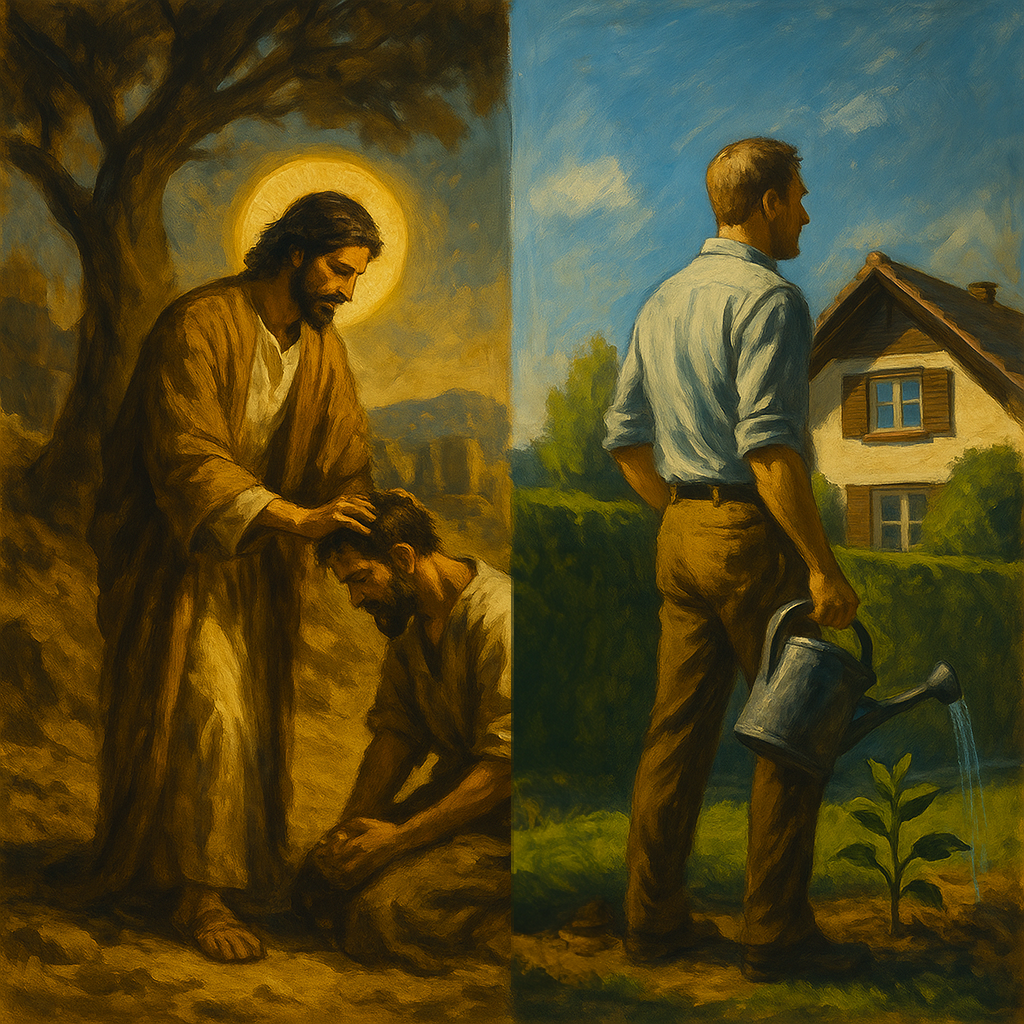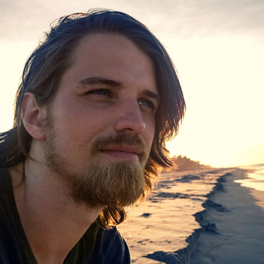




Quantum indeterminacy leaves real openness: not everything is fixed from below. But freedom isn’t mere “noise.” My claim is that free will is not a bottom-up particle but a top-down power of the conscious agent—reason-responsive selection among genuine alternatives. What our instruments record as randomness can be the surface of purposeful choice. A strictly bottom-up hunt therefore misses where freedom lives; it resides in personal agency, not as an epiphenomenal by-product of neural processes.
In physics some things look like dice rolls. But real freedom is more than chance: it’s a person’s power to choose between real options for reasons. There’s no “free-will particle,” because freedom isn’t in the parts below—it’s in the acting person above. What looks like “random” can be the trace of a real choice.

Science succeeds by reduction, explaining effects by their constituents (molecules, cells, fields). That method is superb for emergence from below, but it is not tuned to detect holism from above, where outcomes are selected in light of wider ends. My stance is that wavefunction collapse is such a holistic selection: the hunt for a deeper sub-mechanism simply ends there. If God decides local collapses for global reasons, detection would not come by finer parts but by discerning purpose-shaped patterns in the whole, by understanding the larger aim to which the local outcomes are fitted.
Science often explains big things from small parts—like bricks building a house. But sometimes the plan of the whole guides the parts—like an architect’s idea shaping each room. I think wave collapse is a whole-picture choice, not a hidden little machine underneath. So we should also look for patterns that fit a purpose, not only for ever-smaller pieces. God can decide small events for big reasons.

We all wrestle with the old donkey (C. S. Lewis), yet our deeds disclose our creed. James asks whether faith without works can save; our ledger of time and money answers daily. To purchase a house without vocation—no call, no mission, no charge from God—is not neutral: it is a massive act of self-investment. It ties up capital for private comfort and status, locks future income into self-maintenance, and binds attention to my walls, my equity, my horizon. If Christ has bought our freedom, stewardship means directing our time and money to His ends, not our comfort; otherwise our calendars and accounts become a liturgy of self.
What we do shows what we believe. If we spend our time and money only on ourselves, that tells a story. Big purchases without God’s call can tie up our hearts. Jesus bought our freedom—so we can live for His goals, not just comfort. Wise stewardship asks, “What does God want?” not only “What do I want?”
This tool helps churches and communities surface their Strengths, Weaknesses, Opportunities, and Threats via a guided questionnaire. The aim is an honest snapshot and clear priorities for next steps—from resource planning and team development to missional opportunities. The analysis aggregates responses, highlights patterns and tensions, and proposes actionable next steps.
The “Up–In–Out” triangle comes from the Lifeshapes framework developed by Mike Breen and the 3DM movement as a simple way to picture a balanced life of discipleship and church. “Up” names our relationship with God—worship, prayer, listening, and obedient response—so that ministry flows from intimacy, not effort. “In” focuses on life together—belonging, care, formation, and mutual accountability—because disciples grow best in community. “Out” turns us toward the world—serving, practicing justice and mercy, hospitality, and sharing the good news—so faith blesses people beyond our gatherings. This planner helps leaders analyze and plan how much time they dedicate to Up, In, and Out across weeks and seasons, so they can rebalance and sustain a healthy rhythm.

I’m a mechanical engineer (ETH MSc) with a sustained focus on quantum physics and the intersection between science and faith. I’m also an enthusiastic hobby-philosopher. I live in and lead a community house; when I’m not at work I’m reading, philosophizing, and sketching ideas to better the world. Above all, I’m a husband and father of two.